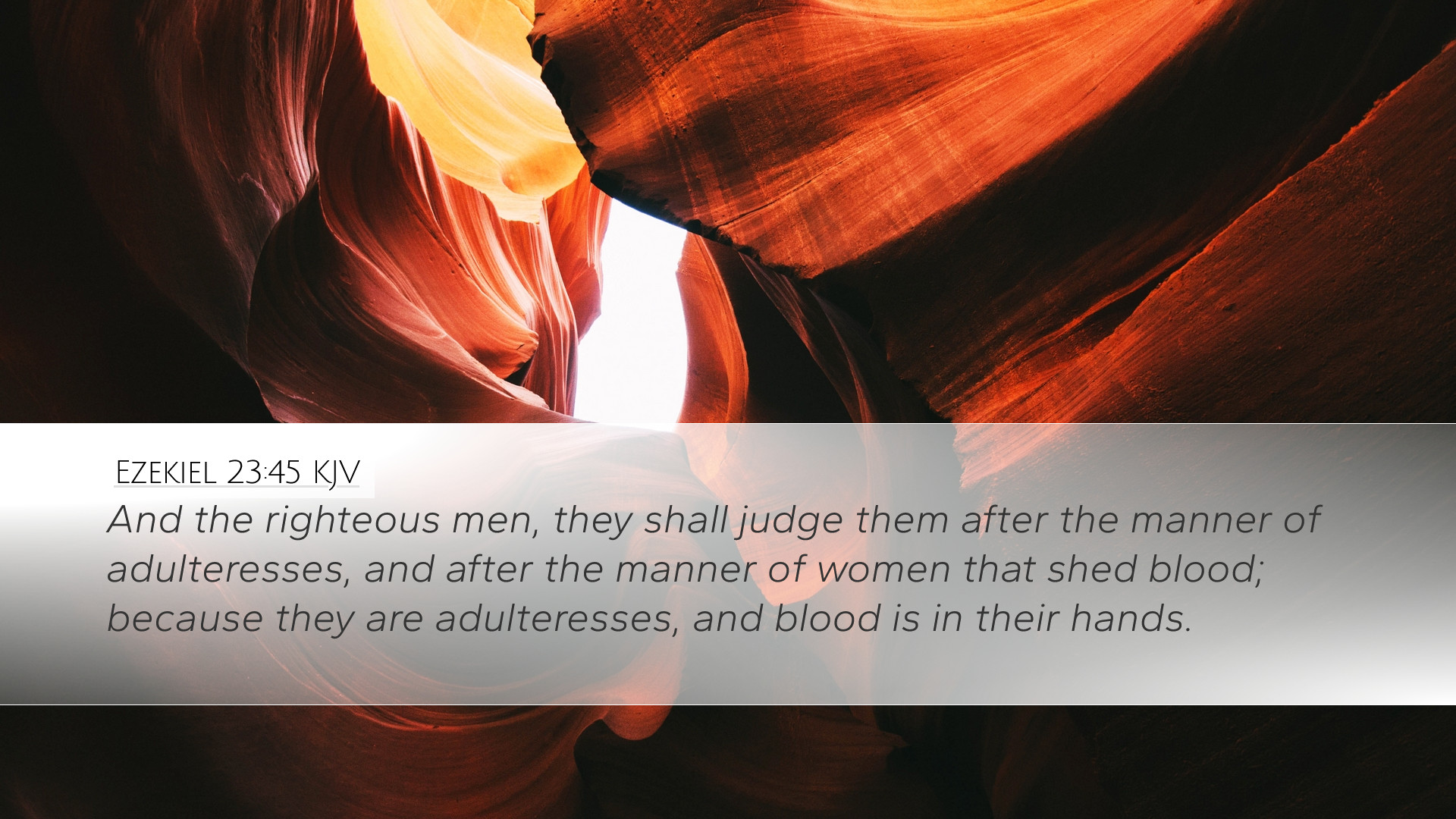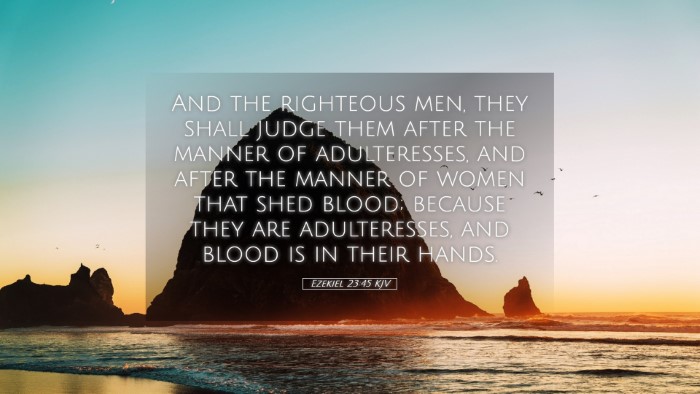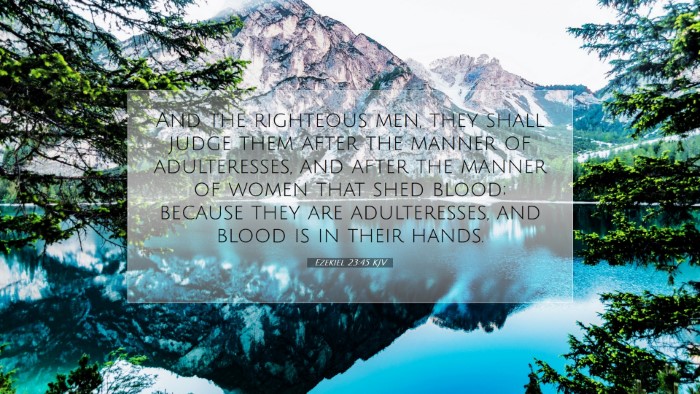Bible Commentary on Ezekiel 23:45
Ezekiel 23:45 (KJV): "And the righteous men, they shall judge them after the manner of adulteresses, and after the manner of women that shed blood; because they are adulteresses, and blood is in their hands."
This verse appears within a larger allegorical narrative in the Book of Ezekiel, where God speaks through the prophet to illustrate the spiritual infidelity of Jerusalem and Samaria, represented as two sisters: Oholah and Oholibah. The judgment expressed here references spiritual unfaithfulness alongside moral transgression, particularly in the context of idolatry.
Historical Context
The context of Ezekiel's prophecy is crucial for understanding its implications. The Israelites, notably those in Jerusalem, faced impending judgment due to their persistent idolatry and moral decay. Ezekiel, a prophet during the Babylonian exile, frequently employs symbolic acts and parables to convey God's message, aiming to provoke repentance and recognition of divine justice.
Thematic Analysis
This verse particularly underscores the nature of divine judgment pertaining to unfaithfulness. The metaphor of adultery is paralleled with the act of shedding blood, suggesting both spiritual and physical crimes against God and others. The phrase "they shall judge them" signifies a community or group of righteous individuals tasked with executing justice upon those who have forsaken God's commandments.
Insights from Public Domain Commentaries
Matthew Henry's Commentary
Matthew Henry highlights that the judgment of God is executed by those who embody righteousness. He interprets the righteous men in this context as those whose lives reflect moral integrity and divine favor, serving as both witness and jury in the trials of their unfaithful counterparts. Henry notes that the analogy to 'adulteresses’ captures the depth of betrayal against God, relating the people’s actions to infidelity in marriage. He further elaborates that such judgments reveal both the severity of sin against divine covenants and the consequent penalties that arise.
Albert Barnes' Notes on the Bible
Albert Barnes emphasizes the gravity of being judged as an adulteress in spiritual terms, remarking that this signifies a breach of covenant. In his analysis, Barnes draws parallels between physical acts of crime – such as murder – and the spiritual crime of idolatry, illustrating how both disturb the order established by God. He notes that this judgment will not be arbitrary; rather, it will be rooted in the established moral law and the clear expectations set forth in covenantal relationships between God and Israel. Barnes concludes by affirming that the righteous men will judge according to these laws, upholding justice while reflecting upon their own fidelity to God.
Adam Clarke's Commentary
Adam Clarke provides a thorough examination of the term 'righteous men' in this verse, suggesting it refers to leaders and judges within Israel who are expected to uphold the law. He articulates a vision of justice that is not only punitive but also restorative, as those who judge are called to call the people back to fidelity and righteousness. Clarke highlights that the actions taken against the adulteresses (representative of Israel's idolatry) will be just, but there is a deep yearning for repentance to avert the coming calamity. He draws attention to the broader point of divine justice in the nation, where the consequences of sin cannot be overlooked or ignored.
Lessons for Today
This verse, while rooted in its historical and cultural context, presents profound lessons relevant for modern pastoral care, theological contemplation, and personal spiritual growth:
- The Nature of Divine Judgment: Just as the people of Israel faced judgment for infidelity, contemporary believers are called to examine the state of their spiritual lives, ensuring fidelity to God amidst a culture that often promotes idolatrous practices.
- Accountability: The concept of righteous judgment encourages believers to hold one another accountable in faith communities, fostering an environment where integrity and faithfulness are revered.
- Importance of Repentance: The underlying call for repentance is ever pertinent. The hope for restoration through repentance is a key theme within the prophetic literature, urging all believers to return to God and seek forgiveness.
- Restorative Justice: Understanding the nature of judgment as both punitive and restorative enables theologians and pastors to approach issues of sin and moral failure in ways that promote healing rather than just condemnation.
Conclusion
Ezekiel 23:45 serves as a poignant reminder of the complexity of sin and divine justice. Through the insights of respected biblical commentators, we glean wisdom on the relational aspect of sin against God and the implications for both judgment and restoration. This passage challenges us to remain faithful to our covenant with God and encourages leaders within the church to foster an environment of accountability, repentance, and support in the journey of faith.


